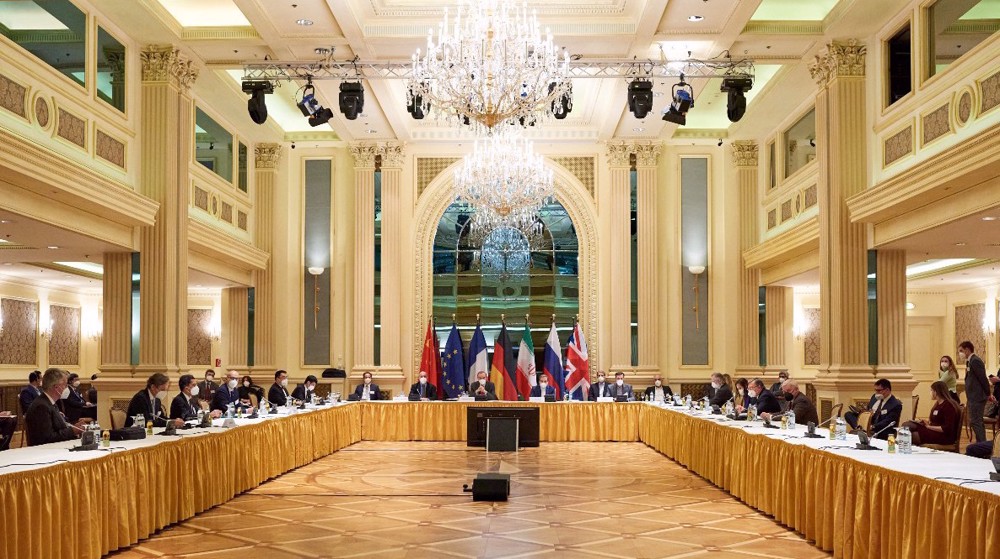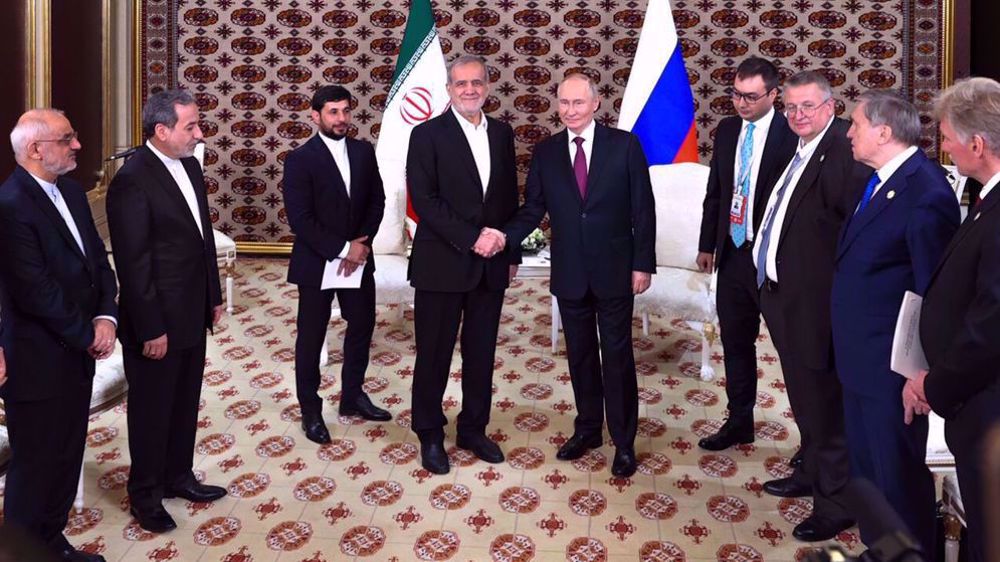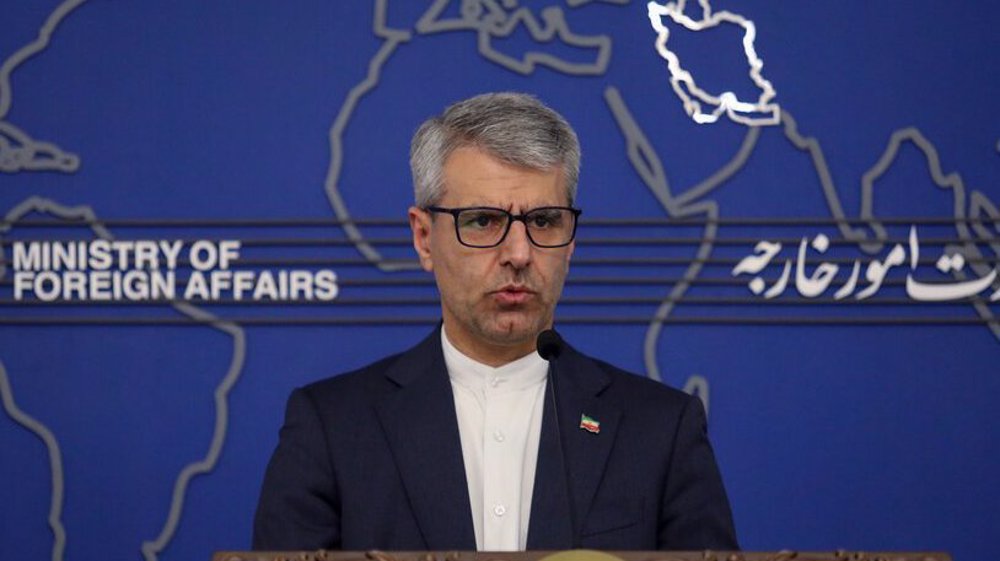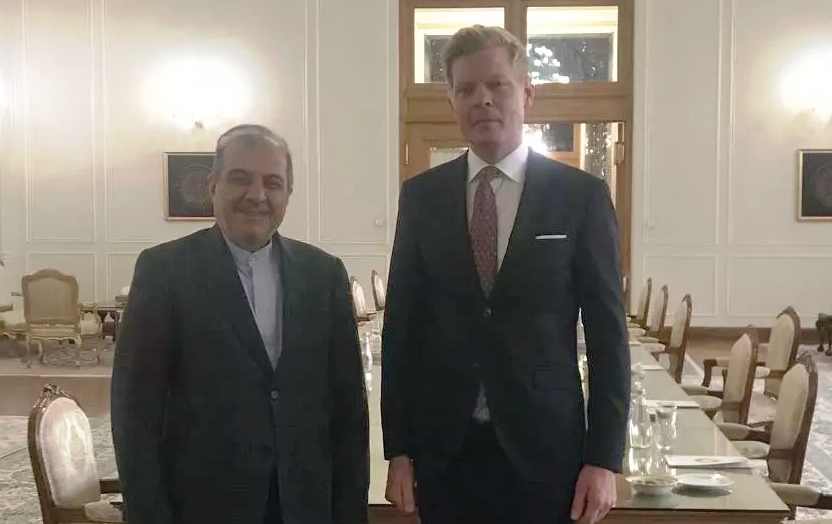Vienna hosts talks between Iran, JCPOA parties on future of nuclear deal
Representatives of Iran and the other remaining signatories to the 2015 nuclear deal have held a new round of talks in Vienna over a possible return of the United States to the agreement that it abandoned some three years ago.
The Joint Commission of the Iran deal, officially known as the Joint Comprehensive Plan of Action, started its 18th round of talks in the Austrian city at around 14:30 local time (1300 GMT), with representatives of Iran, Russia, China, France and Britain in attendance.
The meeting will be chaired by senior Iranian negotiator Abbas Araqchi, deputy foreign minister for political affairs, and Enrique Mora, the deputy of European Union foreign policy chief Josep Borrell.
Araqchi is accompanied by officials from Iran’s Central Bank, the Atomic Energy Organization of Iran, and the country’s Ministry of Petroleum.
Araqchi: Sanctions removal most necessary step towards JCPOA revival
The meeting lasted for one hour and the attendants agreed on holding two sets of parallel expert-level negotiations among the Commission’s member states. One would to address the issue of sanctions relief and the other the nuclear subject matter.
The parties attending the expert-level talks will address the technical aspects and details of each matter, and then report on the results of their negotiations to the Commission.
Following the talks, Araqchi described the removal of the sanctions as “the first and most necessary step that has to be taken towards revival of the JCPOA.”
“Iran is prepared to stop its remedial nuclear measures and return to full implementation of the JCPOA as soon as the sanctions are lifted and [removal of the bans] is verified,” he added.
Russia upbeat about JCPOA’s restoration
Mikhail Ulyanov, permanent representative of Russia to international organizations in Vienna said the first meeting had been “successful.”
He said that the expert-level groups had been “tasked to identify concrete measures to be taken by Washington and Tehran to restore full implementation of JCPOA,” and that “the groups started to work immediately.”
The Russian envoy also said that following today’s meeting, “practical work” had started towards restoration of the JCPOA.
China: US must return to JCPOA unconditionally
In Beijing, Chinese Foreign Ministry spokesman Zhao Lijian addressed a press briefing, urging the US to return to the JCPOA unconditionally and eliminate all the illegal bans targeting the Islamic Republic.
He called Washington’s unilateral withdrawal the main reason behind the current crisis surrounding the agreement.
Zhao expressed hope that all the concerned parties want Washington to take distinct measures towards removing the sanctions and urging it to take necessary action aimed at the immediate restoration of the nuclear pact.
The official said Beijing supported the Joint Commission’s efforts and claimed that it also backed the Commission’s potential interaction with the US.
No talks with US on Iran’s agenda
Ahead of the talks, Iran’s Foreign Ministry reaffirmed in a statement that no representatives from the US are to attend the nuclear talks in Vienna, and that the Iranian delegation’s agenda does not feature any direct or indirect negotiations with Americans either.
“No representatives from the US are to attend the Joint Commission’s gathering or expert-level talks in Vienna,” the Ministry said in a statement, adding, “No direct or indirect negotiation is on the agenda of the Iranian delegation [either].”
The Vienna negotiations take place within the “in-person” and expert-level formats. The Iranian team sat down with the Chinese delegation on Monday, and met with delegations from Russia and the European Union— that coordinated the talks leading to the JCPOA’s conclusion — on Tuesday morning.
Also on Monday, Foreign Ministry spokesman Saeed Khatibzadeh said the talks were slated to address the removal of the US’s oppressive sanctions and the manner of the opposite side’s implementation of its duties.
“On Tuesday, it is going to be determined whether or not the 4+1 (the JCPOA’s remaining signatories) will be able to meet Iran’s demands. It is then that we will be able to walk down a clearer path,” he said.
The spokesman also re-emphasized that Iran had never either proposed or accepted any “a-step-for-a-step proposal.
The discussions will follow up on the Commission’s virtual meeting last year, which focused on the United States’ possible return to compliance with the JCPOA, which the country, under ex-president Donald Trump, left in 2018.
The withdrawal was followed by a so-called maximum pressure, which saw Washington impose tough economic sanctions on Iran, including those lifted by the JCPOA and additional ones.
In one of the latest such steps, Iran confirmed in January that it was enriching uranium to 20 percent purity, well beyond the threshold set by the deal.
A year after the US’s much-criticized exit, Tehran began to take a set of progressive remedial measures under Article 36 of the JCPOA, which allows a party to suspend its commitments in case of non-compliance on the part of the co-signatories.
Now, critical of Trump’s Iran policy, the administration of new US President Joe Biden says it wants to rejoin the agreement, but it has so far failed to act on its expressions of support for the agreement.
Tehran argues that Washington, as the first party that threw the JCPOA into crisis, must take the first step towards reviving the agreement by, practically and verifiably, removing all the sanctions it has placed on Iran following the withdrawal.
Trump would have been convicted if not reelected: Ex-US special counsel
Israeli media: Trump promises Netanyahu to violate nascent Gaza truce
VIDEO | Turning point: Aoun’s presidency in Lebanon
The impulse behind Iran-Russia strategic partnership
Israeli radio: Emerging Gaza ceasefire deal ‘complete failure’ for regime
VIDEO | Press TV's News Headlines
Iran says sanctions removal talks with E3 ‘constructive’; dialogue ‘to continue’
Jan. 13: ‘Axis of Resistance’ operations against Israeli occupation










 This makes it easy to access the Press TV website
This makes it easy to access the Press TV website